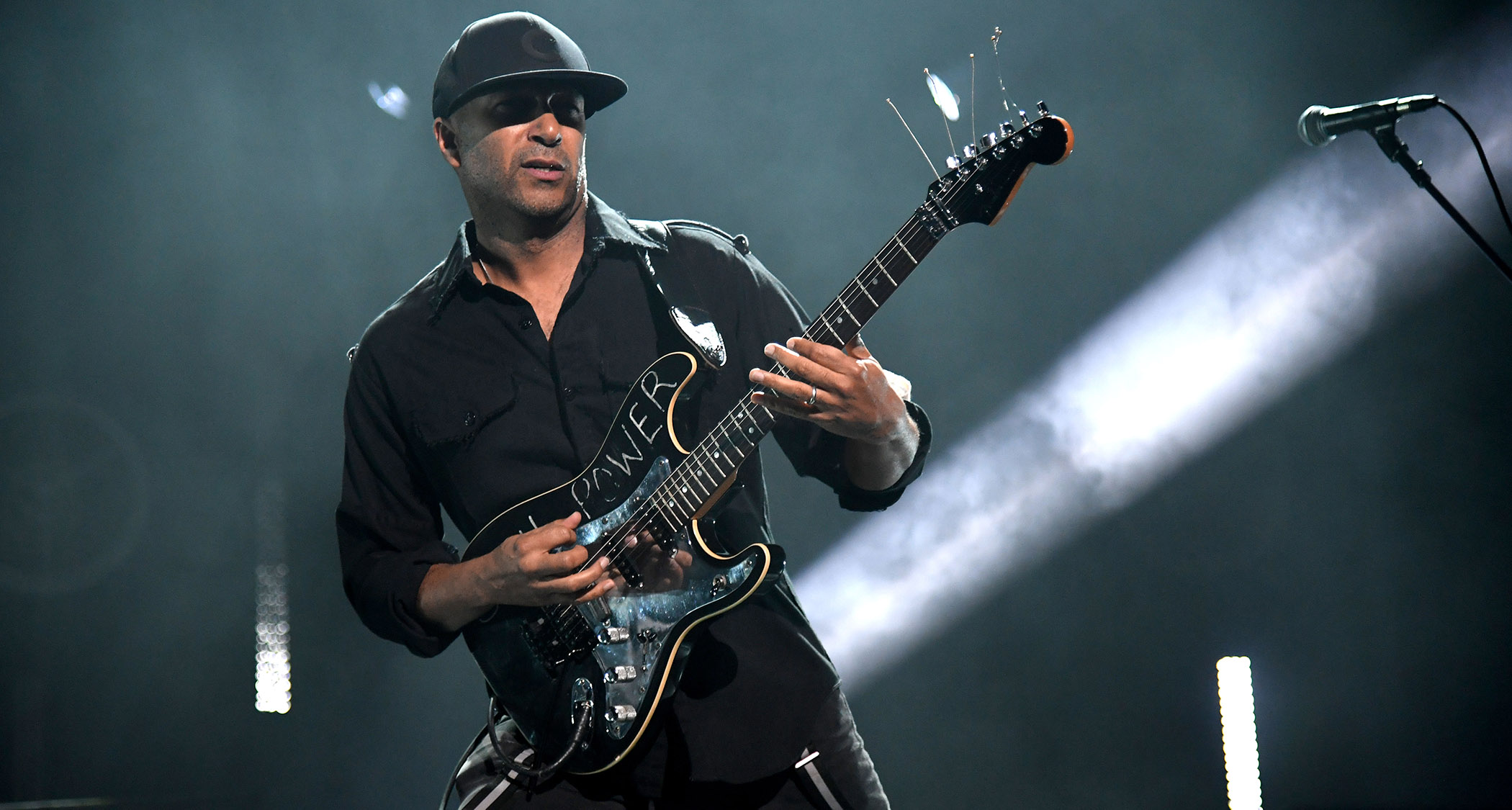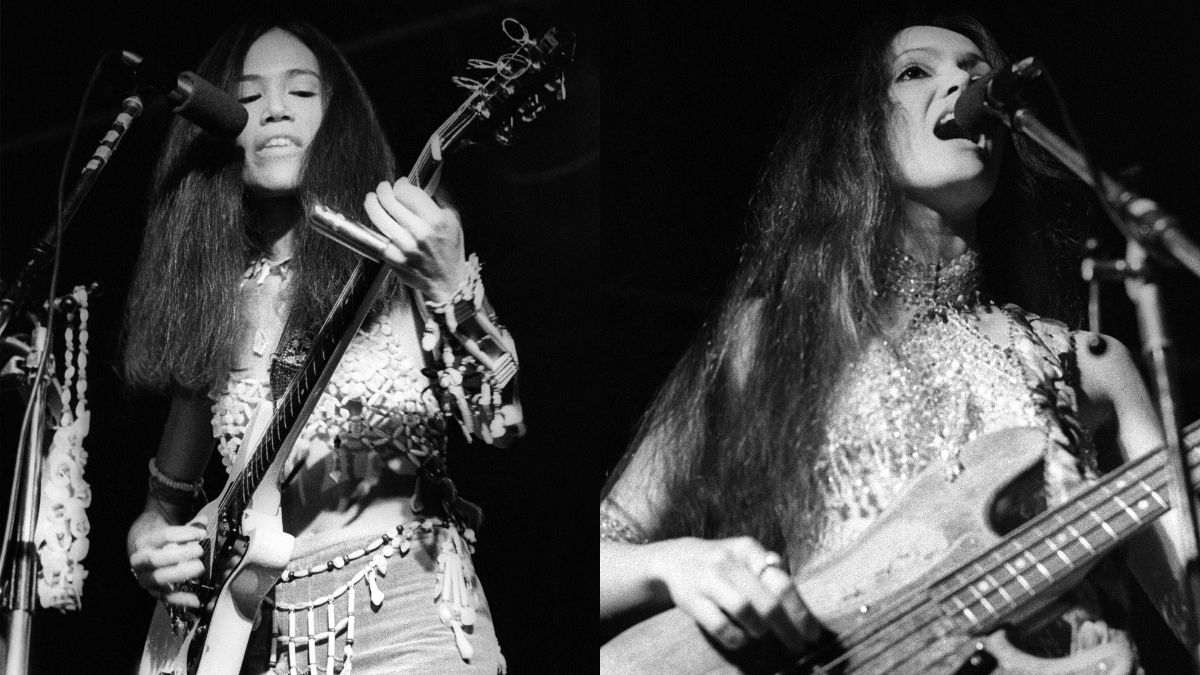“I’d never played a Strat before. But when Audioslave was forming, I was looking for a new guitar. I went into a Guitar Center and found this Strat on the wall. It spoke to me deeply”: Tom Morello on the origins and mods of his Soul Power Strat
The Soul Power was the instrument of new beginnings for Tom Morello, a stock, off-the-wall Guitar Center purchase that was soon to be customized, soon to be iconic in Audioslave. This is its story

All the latest guitar news, interviews, lessons, reviews, deals and more, direct to your inbox!
You are now subscribed
Your newsletter sign-up was successful
There have been all kinds of Fender Stratocasters through the 70 years since its release, some traditional, some modern, while others, such as Tom Morello’s Soul Power Strat, embrace the modular aspect of Leo Fender’s design and are modded into something new.
Yes, it’s still a Strat – a Designer Series Strat, to be precise – but as the Rage Against the Machine guitarist tells us, it is a Strat with a whole raft of changes to facilitate his unorthodox style, and usher in a new era for him artistically as he hooked up with the late Chris Cornell and co for Audioslave.
This, Soul Power, is the Audioslave Strat, and it is one of the coolest electric guitars in 21st century rock.
Where and when did you buy your “Soul Power” Strat?
“What’s interesting about the Soul Power guitar is that I had never played a Strat before. But around the time Audioslave was forming, I was looking for a new guitar to be my primary form of expression. I ended up going into a Guitar Center in Hollywood, and I found this Strat on the wall and took it home.”
Why did you choose this Strat above the others at Guitar Center?
“I literally saw it as a blank canvas. I wanted to have something totally different from what I’d had previously. I loved its stock form but needed to make it my guitar. I wanted it to be unique to point toward a new batch of songs.
All the latest guitar news, interviews, lessons, reviews, deals and more, direct to your inbox!
“We were entering this new sonic landscape led by Chris Cornell’s amazing vocals, so I wanted a guitar that could undertake that new level of nuance and undertake new sounds that I hadn’t heard before from my other guitars.”
Did you use this guitar on any notable recordings?
“I used it on songs like Cochise, Like a Stone and I Am the Highway. It was the guitar I used on all three of Audioslave’s records. The Soul Power guitar was the Audioslave guitar!”
What about this guitar felt right in your hands compared to your “Arm the Homeless” guitar?
“I liked that this guitar spoke to me deeply. I’ve been known to scrawl things on instruments, and almost the second I got home, I took a white marker and scrawled ‘Soul Power’ on the guitar because I knew this was going to be a new era and a new band with Audioslave.
“The Arm the Homeless guitar has taken me on one journey, and I’d used that on a lot of stuff. I also used my Telecaster on the Rage Against the Machine stuff, but I wanted this guitar, the Soul Power guitar, to be something different from what that had been.”
What were some of the modifications you made to the Soul Power Strat?
“Soul Power had to be different from the other guitars I had, so within 72 hours of owning it, I added the kill switch for the stuttering sounds, some Seymour Duncan Hot Rails pickups and an Ibanez whammy bar. I also had this idea of the fretboard being like what Ace Frehley would’ve had on, like, [Kiss’s] Alive II, so I believe I had it re-fretted a couple of times too.”
I’m very proud of the fact that when I did the Soul Power guitar with Fender, they came out exactly like my original guitar
Though you’d never endorsed a guitar before, Soul Power became your first signature guitar with Fender.
“I’d never done any signature guitar stuff before and had never really wanted to do any sort of endorsement. But if I was going to do one, it had to be something I believed in, that was done the right way.
“I’m very proud of the fact that when I did the Soul Power guitar with Fender, they came out exactly like my original guitar. I still have the original at home, and I have one of the ones we did with Fender – and they’re exactly the same.”
You mentioned you still own the original Soul Power Strat, but when did you last play it?
“Around 48 hours ago. [Laughs] I’m working on some new music, and it’s one of the guitars I still play regularly. But it’s funny – I’ve been relegated to being a rhythm guitarist in my house, as my 13-year-old plays my other [signature] Soul Power guitar, and he’s a shredder!”
What does the Soul Power Strat mean to you, considering that most people associate you with Arm the Homeless?
“It’s an important guitar because it represents a transitional period in my career with Audioslave. Soul Power was a new way to express myself during this new phase with this new band that included Chris Cornell, Tim Commerford and Brad Wilk. It became an instrument of liberation, was about inspiration and was not overthought from the second I grabbed it off that wall.”
Andrew Daly is an iced-coffee-addicted, oddball Telecaster-playing, alfredo pasta-loving journalist from Long Island, NY, who, in addition to being a contributing writer for Guitar World, scribes for Bass Player, Guitar Player, Guitarist, and MusicRadar. Andrew has interviewed favorites like Ace Frehley, Johnny Marr, Vito Bratta, Bruce Kulick, Joe Perry, Brad Whitford, Tom Morello, Rich Robinson, and Paul Stanley, while his all-time favorite (rhythm player), Keith Richards, continues to elude him.



